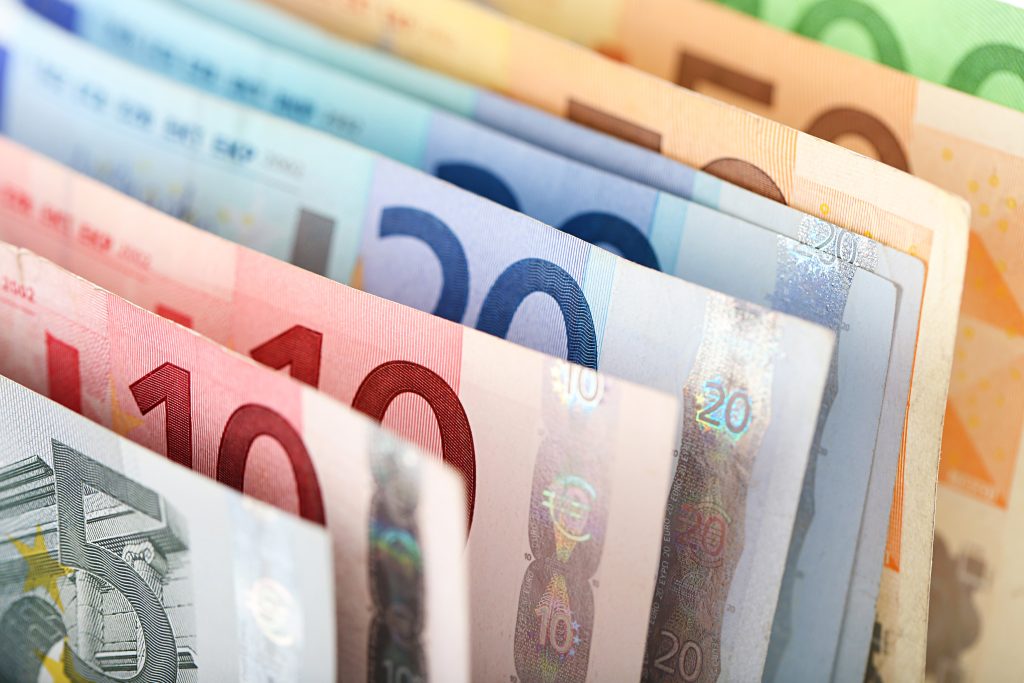Paris is a dream destination for travelers from all around the world. Whether you’re strolling along the romantic Seine River, exploring the Louvre Museum, or marveling at the grandeur of the Eiffel Tower, Paris offers a rich cultural experience like no other. However, before you embark on your Parisian adventure, it’s essential to understand how to navigate currency exchange in the city.
Currency in Paris
The official currency of France is the Euro (€). Introduced in 2002, the Euro replaced the French Franc as the legal tender. It’s worth noting that France is part of the European Union, which means that the Euro is widely accepted throughout the country. This simplifies transactions for travelers, as they don’t need to worry about exchanging currency when traveling from one city to another within France.

Currency Exchange Options
When it comes to exchanging your dollars to Euros in Paris, you’ll find several options available. Here are some common methods:
1. Banks
Banks are a reliable and secure option for currency exchange. In Paris, you can find numerous banks that provide exchange services. It’s advisable to exchange your money at larger banks, as they often offer competitive rates and have a wider range of currencies available. However, keep in mind that banks may charge a commission or transaction fee for currency exchange.

2. Exchange Offices
Exchange offices, often called “bureaux de change” or “foreign exchange bureaus,” are prevalent in Paris. These establishments specialize in currency exchange and offer competitive rates. It’s important to compare rates and fees at different exchange offices before making a transaction, as rates can vary. Be cautious of smaller, less reputable exchange offices, as they may charge higher fees or offer unfavorable rates.

3. ATMs
Automatic Teller Machines (ATMs) are a convenient option for obtaining Euros in Paris. They can be found throughout the city and are often linked to international banking networks. Using an ATM allows you to withdraw Euros directly from your bank account, usually at the current exchange rate. However, keep in mind that your bank may charge foreign transaction fees and ATM withdrawal fees. Additionally, inform your bank of your travel plans to ensure uninterrupted access to your account.

4. Credit Cards
Credit cards are widely accepted in Paris, especially in hotels, restaurants, and larger retail stores. Visa and Mastercard are the most commonly accepted cards, while American Express and Discover may have more limited acceptance. When using your credit card, you’ll likely be given the option to pay in Euros or your home currency. Opting to pay in Euros can help you avoid unfavorable exchange rates and additional fees.

Tips for Currency Exchange in Paris
Now that you know the options for currency exchange in Paris, here are some essential tips to keep in mind:
1. Plan Ahead
It’s a good idea to have some Euros with you before arriving in Paris. This can help you cover immediate expenses like transportation or meals upon arrival. Consider exchanging a small amount of money in your home country before departure or withdrawing Euros from your bank before your trip.

2. Compare Exchange Rates
Exchange rates can vary between different banks and exchange offices. Before exchanging your money, compare rates to ensure you get the best deal. Keep an eye out for any additional fees or commissions that may affect the overall cost of the transaction.

3. Use Reputable Exchange Offices
Stick to well-known and reputable exchange offices to minimize the risk of scams or unfavorable rates. Look for offices that prominently display their rates, have professional staff, and clearly state their fees.

4. Notify Your Bank
Before traveling to Paris, inform your bank of your travel plans to avoid any issues with your debit or credit card.

5. Carry Sufficient Cash
While credit cards are widely accepted in Paris, it’s always wise to carry some cash for smaller establishments, street vendors, or places that may not accept cards. Ensure you have enough Euros on hand to cover your daily expenses and any unexpected situations.

6. Avoid Currency Exchange at Airports
Currency exchange services at airports tend to have higher fees and less favorable rates. If possible, avoid exchanging your money at the airport and opt for banks or exchange offices in the city instead.

7. Be Cautious of Dynamic Currency Conversion
When using your credit card in Paris, you may encounter a practice called dynamic currency conversion. This occurs when a merchant offers to charge your card in your home currency instead of Euros. While it may seem convenient, be aware that this often comes with unfavorable exchange rates and additional fees. Always choose to be charged in Euros to get the most favorable exchange rate.

8. Keep Track of Exchange Rates
Stay informed about the current exchange rates between the dollar and the Euro. This can help you make better decisions when it comes to currency exchange. Online currency converters or smartphone applications can assist you in tracking exchange rates in real-time.

9. Stay Vigilant
Like in any city, be cautious of pickpockets or scams targeting tourists. When exchanging money, count your cash discreetly and be mindful of your surroundings. Consider using a money belt or a secure wallet to keep your cash and cards safe.

10. Save Your Receipts
When exchanging currency, keep your receipts. This will help you reconcile your transactions and can be useful for any necessary currency-related documentation, such as proof of exchange for tax purposes.

Navigating currency exchange in Paris is essential for any traveler visiting the city. By understanding the different options available, comparing exchange rates, and following the tips provided, you can make informed decisions and ensure you get the most out of your currency exchange transactions. Remember to plan ahead, carry sufficient cash, notify your bank, and stay vigilant throughout your stay in Paris. With proper preparation, you can enjoy your time in Paris without worrying about currency exchange issues. Bon voyage!








